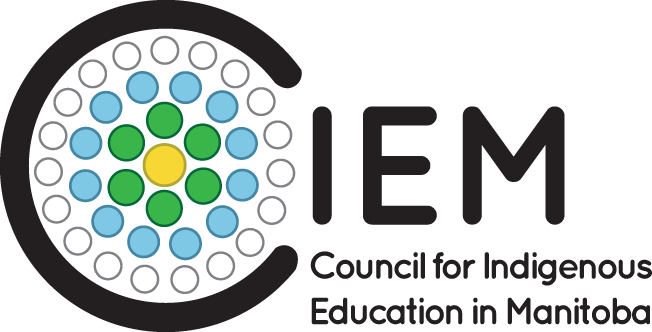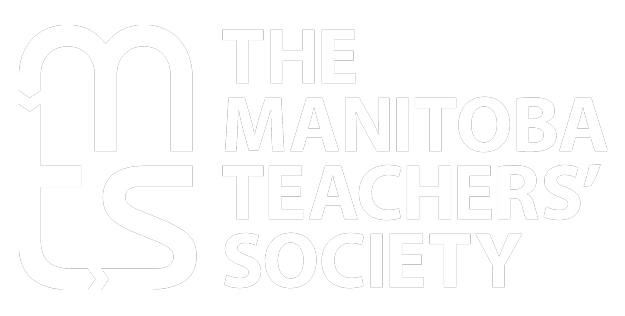Council for Indigenous Education in Manitoba MTS PD Day
Walking the Good Path: Truth before Reconciliation
October 25, 2024
Viscount Gort Hotel – 1670 Portage Avenue, Winnipeg, Manitoba
Register here: https://www.mbteach.org/mtscms/2024/09/03/mts-pd-day-2024-oct-25-2024/
Program
9:00: Arrival, Optional Smudge, Registration, and Resource Fair
9:30: Welcome and Opening Prayer
9:45: Keynote Presentation
11:45: Break
12:00: Lunch and AGM
1:00: Networking Time and Resource Fair
1:30: Afternoon Sessions
2:30: Closing and Door Prize Draws
Morning Keynote
Tammy Wolfe is a proud member of Norway House Cree Nation; as an individual impacted largely by Indigenous social justice issues, she has committed her life and the heart work she does in the community to advocating to make positive changes within the lives of Indigenous peoples. As a lifelong learner, she has attained multiple college diplomas, a bachelor of arts and an education degree and most recently she completed the Master’s of Arts in Indigenous Governance degree at the University of Winnipeg. She successfully defended her thesis “Unheard Voices: Healing Stories of Reclamation and Rebuilding for Families of MMIWG2S who have not been involved in the National Inquiry”, and graduated as the graduate student of highest distinction in 2022. This work is close to her heart as she honored her mother as well as all others impacted by the ongoing problem of MMIWG2S. She is committed to continuing this work as a 2nd year PhD candidate at the University of Manitoba in the Indigenous Studies Department where she is studying the holistic healing benefits of beadwork with the MMIWG2S community.
In keeping with her love of teaching as a passionate educator and academic, she currently works as a lecturer at the University of Winnipeg & University of Manitoba teaching predominantly Indigenous studies focused courses. She hosts a podcast “Truth Before Reconciliation” which began in 2019, where it provides listeners with a variety of knowledgeable perspectives on both current and historical content of Indigenous truths throughout Canada, in order to educate, inform and encourage reconciliation through community awareness and taking action. In addition, she runs an award-winning consulting business that works in alignment of the TRC’s 94 Calls to Action.
Breakout Sessions
| Session A1: Elder Belinda Vandenbroeck Regal Room (30 maximum) Elder Belinda Vandenbroeck is one of the co-founders of Clan Mothers Healing Village and Knowledge Centre. Clan Mothers provides support for women who have been victims of trauma, violence, exploitation, and human trafficking. Their treatment models incorporate Indigenous methodologies and knowledge, primarily focusing on Indigenous matrilineal modes of healing. Prior to co-founding Clan Mothers, she worked at Grandmother Moon Lodge for 18 years. Since that time, she has helped thousands of women and girls deal with a wide array of issues related to the multi-generational trauma they have faced. Elder Belinda is guided by her own healing journey and sobriety and is committed to decolonization in her teachings. |
| Session A2: Cree Language Brenda Muswagon and Sylvia Wastesicoot Kensington Room (35 maximum) Come and learn Néhinawéwin! Brenda Muswagon is a Cree language speaker from Kinosao Sipi and Sylvia Wastesicoot is a Cree language speaker from Tataskweyak. They are both Indigenous Student Success Teachers from Pembina Trails School Division. Come and learn different strategies for teaching Néhinawéwin and how worldview is embedded in the language. Ekosi. |
| Session A3: Ojibwe Language Wanda Barker Hanover Room (35 maximum) Come and learn Anishinaabemowin! Wanda Barker is Anishinaabe from Hollow Water First Nation. She previously worked as a language consultant for the Province of Manitoba. She is a project advisor/editor language specialist. She teaches Anishinaabemowin on weekends. “Language comes from the land (and) way of life, whether it’s hunting, whether it’s preparing food, whether it’s socializing, whether it’s economic, political, spiritual. All the words reflect from that worldview.” Maybe add. Wanda teaches language through various strategies such as music, movement, games , dialogue and will demonstrate some of the strategies she uses. |
| Session A4: National Centre for Truth and Reconciliation NCTR Jennifer Wood Windsor Room (40 maximum) Jennifer Wood is Ojibway from Neyaashiinigmiing First Nation, Ontario. Jennifer currently works as the Intergovernmental and Community Relations Liaison for the National Centre for Truth and Reconciliation. In this session, Jennifer will discuss the role of the NCTR as a place of learning and dialogue for Truth and Reconciliation. Jennifer was the Coordinator of the Residential Schools Settlement Agreement for nearly a decade for the Assembly of Manitoba Chiefs. In 2007 she planned and organized the First Residential School Survivors National Gathering for Survivors. In 2011, she coordinated the Hidden Legacy for Residential School Survivors Gathering and managed the National Protocol Signing Agreement whereby First Nations in Canada and the United States signed a historical protocols agreement to work together and partner for business and other enterprises development. She was the senior political staff adviser for Grand Chief Sheila North of Manitoba Keewatinowi Okimakanak (MKO). Prior to that, she had worked for ten years as the political assistant to Elijah Harper, one of the first Indigenous Members of Parliament. |
| Session A5: Land-based Education Sheldon Orvis Royal AB Room (40 maximum) Knowledge Keeper Sheldon Orvis carries a wealth of Traditional Ecological Knowledge and experience on the land. He has extensive knowledge in hunting, trapping, harvesting, orienteering and plant identification. Sheldon is First Nation and comes from the east shores of lake Winnipeg from the small village of Grand Marais. He graduated with a diploma in Natural Resource Management from Keewatin Community College in 2003 and is currently employed by the province of Manitoba as a conservation officer for over 20 years. He has a passion for our ecosystems and sustainability for our future generations. |
| Session A6: Treaty Story Cora-Leigh Fast Viscount A Room (40 maximum) This seminar will emphasize the importance of storytelling and its role in fostering a deeper understanding of treaties. Participants will explore practical strategies for adapting treaty content to different age groups, ensuring that it is engaging and accessible for all students, from kindergarten through grade 12. A key focus will be on building strong, respectful relationships with students through the lens of treaties. Educators will learn how to create an inclusive classroom culture that honors Indigenous knowledge and diverse perspectives, helping students connect with the material and each other in meaningful ways. Through hands-on activities and discussions, you will gain practical tips for integrating treaty education into various subjects and curricula. Whether you’re new to treaty education or looking to enhance your current approach, this seminar will equip you with the tools and confidence to make treaty education relevant and impactful in today’s classrooms. By the end of the session, you’ll have strategies for building positive relationships and creating a more inclusive learning environment for your students. |
| Session A7: Indigenous Education Resources Jill Fast Viscount B Room (40 maximum) An overview of a variety of Indigenous education resources. The presenter will walk you through her favourite and most recommended websites, books, videos, as well as local organizations and place-based learning sites. Jill Fast is an Indigenous Education Support Teacher with Pembina Trails School Division. |
| Session A8: Chris Eccles Giant Floor Map Royal C Room (40 maximum) This map shows the locations of Indigenous communities, residential schools, reserves and more. Rather than political borders, Canada is broken up into Indigenous language groups. This resource will assist you and your students in understanding the past, present and future of Indigenous Peoples in Canada. There is a wealth of information and diversity of stories and voices on this map; however, we recognize that no resource will ever be able to encompass all Indigenous voices and stories. |
Walks-ins are welcome, until we reach our maximum allowed capacity of 300 people. Thank you for understanding.
The Manitoba Teachers’ Society
191 Harcourt Street, Winnipeg, Manitoba, Canada R3J 3H2
Phone: (204) 888-7961

